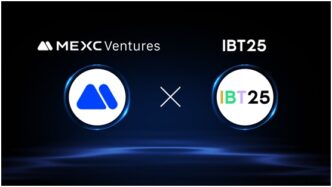Blockchain technology has gained significant attention in recent years, primarily due to its association with cryptocurrencies like Bitcoin. However, blockchain’s potential extends far beyond the space of digital currencies. In this article, we will delve into the various applications of blockchain technology in different industries and explore the possibilities that lie ahead.
Blockchain Briefly Explained
At its core, blockchain is a decentralised and distributed ledger technology that allows multiple parties to maintain a shared record of transactions in a transparent and secure manner. Unlike traditional databases, which are centralized and controlled by a single entity, blockchain operates on a network of computers, known as nodes, where each node maintains a copy of the entire blockchain. This decentralized architecture ensures that no single party has control over the entire system, making it highly resistant to tampering and censorship.
Each transaction in a blockchain is grouped into a block, which contains a digital signature, a timestamp, and a unique identifier called a hash. The hash of each block is generated using cryptographic algorithms, creating a chain of blocks, hence the term “blockchain.” Once a block is added to the chain, it becomes nearly impossible to alter the information stored within it, providing a high level of data integrity and immutability.
Blockchain in Supply Chain Management
One area where blockchain has the potential to revolutionise processes is supply chain management. Traditionally, supply chains have been plagued by issues of transparency, accountability, and trust. Blockchain technology can address these challenges by providing a decentralized and immutable ledger that records every transaction and movement of goods.
By implementing blockchain in supply chains, companies can enhance transparency and traceability. Each participant in the supply chain can record and verify transactions, creating an auditable and tamper-proof system. This transparency not only helps in identifying and mitigating fraud but also improves efficiency by reducing paperwork and streamlining processes. Furthermore, blockchain ensures ethical sourcing by allowing consumers to trace the origin and journey of products, promoting sustainability and fair trade.
Already, several successful blockchain implementations in supply chain management have emerged. For example, Walmart, in collaboration with IBM, implemented a blockchain-based system to trace the origin of their products. This enabled them to quickly identify and remove contaminated food items from their shelves, enhancing consumer safety and trust.
Blockchain in Healthcare
The healthcare industry faces numerous challenges, including secure data management and interoperability. Blockchain technology holds promise in addressing these issues, offering a decentralized and secure platform for managing medical records and patient data.
With blockchain, medical records can be stored securely and accessed only by authorized parties. Patients have control over their data, granting permissions to healthcare providers when necessary. The decentralized nature of blockchain eliminates the need for intermediaries, ensuring faster and more secure data sharing among healthcare providers.
Moreover, blockchain can streamline clinical trials by securely recording consent, data collection, and analysis. This not only reduces administrative burdens but also enhances data integrity and patient privacy. Additionally, blockchain can be leveraged to tackle the issue of counterfeit drugs by creating a transparent and immutable supply chain, ensuring that patients receive authentic medications.
Voting Systems and Blockchain
The integrity of voting systems has been a topic of concern in many democratic processes. Blockchain technology offers a potential solution by providing transparency, immutability, and security to voting systems.
Traditional voting systems are vulnerable to tampering, fraud, and distrust. By leveraging blockchain, each vote can be recorded in a transparent and immutable manner, allowing citizens to verify their votes while maintaining their anonymity. The decentralized nature of blockchain eliminates the need for a central authority, reducing the chances of manipulation and enhancing trust in the system.
Pilot projects and initiatives exploring the use of blockchain in voting systems have already emerged. For instance, West Virginia successfully conducted a pilot project that utilized blockchain for mobile voting during the 2018 midterm elections. Blockchain-based voting systems have the potential to increase voter participation, enhance transparency, and safeguard the integrity of democratic processes.
Blockchain in Decentralized Finance (DeFi)
Decentralized Finance (DeFi) has emerged as an exciting and disruptive application of blockchain technology. DeFi aims to revolutionize traditional financial systems by eliminating intermediaries and providing open and inclusive access to financial services.
Blockchain enables decentralized lending, borrowing, and trading of digital assets without relying on banks or financial institutions. Smart contracts, built on blockchain platforms like Ethereum, facilitate the automation and execution of financial agreements, ensuring transparency and reducing the need for intermediaries.
However, it is important to acknowledge the challenges and risks associated with DeFi. Smart contract vulnerabilities, regulatory concerns, and potential financial risks are areas that need to be addressed for the widespread adoption of DeFi. Nonetheless, DeFi has the potential to provide financial services to the unbanked, increase financial inclusivity, and reshape the traditional financial landscape.
Future Prospects and Challenges
Looking ahead, blockchain technology holds immense promise for further advancements and applications. The scalability of blockchain, particularly in handling a high volume of transactions, remains a challenge that needs to be addressed. Moreover, the energy consumption associated with blockchain mining has raised environmental concerns, requiring innovative solutions for sustainability.
Regulatory frameworks and collaboration between governments, industries, and technology experts are crucial for the widespread adoption of blockchain technology. Establishing clear guidelines and standards will foster trust and encourage organizations to explore and implement blockchain solutions.
Conclusion
Blockchain technology is far more than just the foundation of cryptocurrencies. Its potential extends to diverse industries, promising increased transparency, security, and efficiency. From transforming supply chain management and revolutionizing healthcare to enhancing voting systems and reshaping the financial landscape, blockchain is poised to play a pivotal role in our future.
As we continue to explore the possibilities of blockchain beyond cryptocurrency, it is crucial to address the challenges and risks associated with its implementation. By fostering collaboration, innovation, and regulatory frameworks, we can unlock the true potential of blockchain and create a more transparent, secure, and decentralized world. Embracing blockchain technology opens the door to a future where trust and efficiency intersect in ways we never thought possible.












